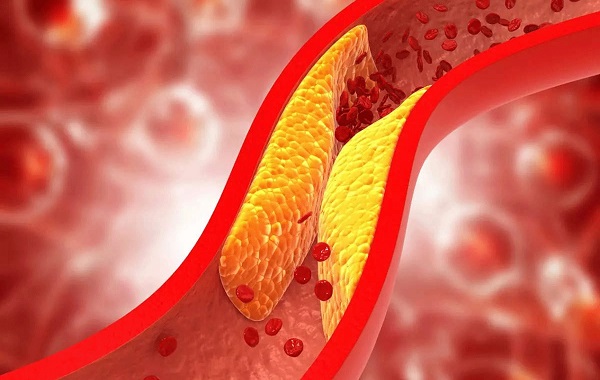Niacin is a B vitamin that helps keep your nervous system, digestive system, and skin healthy. Niacin (vitamin B3) is often part of a daily multivitamin. Foods rich in niacin include yeast, milk, meat, tortillas, and cereals.
1. What is Niacin (vitamin B3)?
Niacin, or nicotinic acid, commonly known as niacin (vitamin B3), is a vitamin that everyone needs. When taken in large doses, vitamin B3 has been shown to improve cholesterol levels by reducing triglycerides and bad cholesterol (LDL), and increasing good cholesterol (HDL).
2. What are the uses of Niacin (vitamin B3)
Niacin (vitamin B3) supplementation is a method of increasing high-density lipoprotein (HDL) cholesterol, with good studies showing that niacin can increase good HDL cholesterol levels and reduce triglycerides. Niacin also has the effect of reducing bad LDL cholesterol. It is often prescribed in combination with statins to control cholesterol, such as Crestor, Lescol, or Lipitor.
However, niacin is only effective at treating cholesterol at quite high doses. These doses can cause risks, such as liver damage, digestive problems, or glucose intolerance. So do not self-medicate with over-the-counter niacin supplements.
Niacin has many other benefits. There are studies showing that it helps reduce atherosclerosis, or hardening of the arteries, in some people. For people who have had a heart attack, niacin appears to reduce the risk of a second one. Additionally, niacin is considered a treatment for pellagra, a rare condition that develops due to niacin deficiency.
Niacin (vitamin B3) deficiency: Niacin and a related nutrient called niacinamide are used to treat or prevent niacin deficiency. This condition is uncommon.

There are many studies showing that Vitamin B3 helps reduce atherosclerosis.
3. How to Use Niacin (Vitamin B3)
Since niacin can be used in a variety of ways, you should consult your doctor to determine the optimal dose of niacin for your body.
Everyone needs a certain amount of niacin from food or supplements for the body to function properly. For niacin, niacin supplementation varies by age and other factors:
- Children: 2-16 milligrams per day, depending on age
- Men: 16 milligrams per day
- Women: 14 milligrams per day
- Women (pregnant): 18 milligrams per day
- Women (breastfeeding): 17 milligrams per day
- Daily maximum for adults of all ages: 35 milligrams per day
Most people can get the niacin they need by eating a healthy diet. If your doctor prescribes a niacin supplement, you can take it with food. This can help prevent stomach upset.
4. Side effects of using Niacin (vitamin B3)

Niacin is generally safe for most people when taken by mouth.
Niacin is generally safe for most people to take by mouth. A common minor side effect of niacin is flushing. This can cause burning, tingling, itching, and redness of the face, arms, and chest, as well as headache. Starting with a small dose of niacin and taking 325 mg of aspirin before each dose of niacin will help reduce the flushing reaction. Usually, this reaction goes away as the body gets used to the medication. Alcohol can make the flushing reaction worse. Therefore, avoid drinking large amounts of alcohol while taking niacin.
Prescription niacin may be beneficial for people with high cholesterol who cannot take statins or cannot control their cholesterol levels through statins, diet, and exercise. Do not take prescription niacin for high cholesterol if you are pregnant.
Other side effects of niacin include stomach upset, intestinal gas, dizziness, mouth sores, and other problems.
High doses of niacin can cause some side effects such as:
- Severe skin flushing combined with dizziness
- Irregular heartbeat
- Itching
- Nausea and vomiting
- Abdominal pain
- Diarrhea
- Gout
- Liver damage
- Diabetes
When taking doses of more than 3 grams per day of niacin, more serious side effects can occur. These include liver problems, gout, peptic ulcers, vision loss, high blood sugar, irregular heartbeat, and other serious problems. When used daily for many years, niacin can increase the risk of diabetes.
Stroke: Some concerns have been raised about the risk of stroke in people who take niacin. In one large study, people who took high doses of niacin had twice the risk of stroke as people who did not take niacin. However, it is unlikely that this effect is due to niacin. Another study found that niacin had no effect on stroke risk.
Niacin is safe for pregnant and breastfeeding women when taken in recommended amounts. The recommended amount of niacin for pregnant or breastfeeding women is 30 mg per day for women under 18 and 35 mg for women over 18.
Allergies: Niacin may worsen allergies by causing the release of histamine, the chemical responsible for allergy symptoms.

Niacin may aggravate allergies.
Heart disease/unstable angina: Large amounts of niacin may increase the risk of irregular heartbeat. Use with caution.
Crohn’s disease: People with Crohn’s disease may have low levels of niacin and may need to supplement during flare-ups.
Diabetes: Niacin may increase blood sugar levels. People with diabetes who take niacin should monitor their blood sugar levels carefully.
Surgery: Niacin may interfere with blood sugar control during and after surgery. Stop taking niacin at least 2 weeks before surgery. Additionally, niacin may increase the risk of infection.
Thyroid disorders: Thyroxine is a hormone produced by the thyroid gland. Niacin may decrease blood levels of thyroxine. This may worsen symptoms of thyroid disorders.





